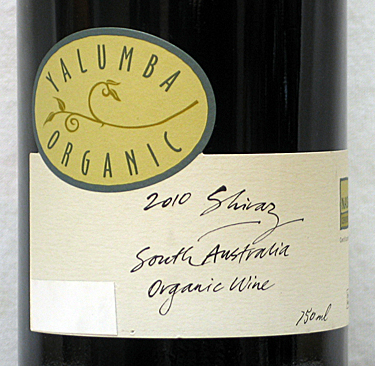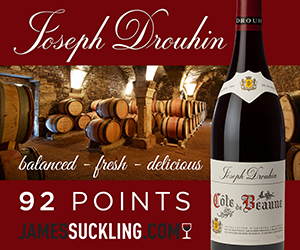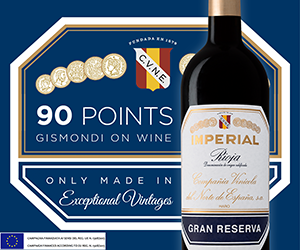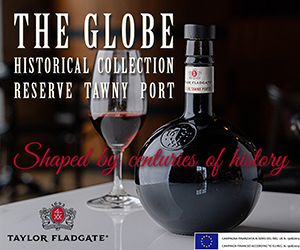One of the more hotly debated topics in the modern wine business is sustainable versus organic versus biodynamic grape production.
All three are in full bloom, so to speak, in vineyards and the questions and positioning in each side of the debate makes the screw cap discussion look like a coffee house chat. There is something about organics that brings out the best and worst in people, especially those who see the world in black and white.
Whether it's terminology or philosophy, the definition of organic wine is elusive at best. In the vineyard, likely the most useful definition is the grapes are grown without the use of chemical fertilizers, pesticides, fungicides and herbicides.
Inside the winery, it gets more difficult if you consider rightly or wrongly that the wine making should be guided by minimal manipulation of wines using a wide ranging number of techniques that include reverse osmosis, excessive filtration, flavour additives and much more. Add to that the raging debate on sulphites and how much should or should not be used in organic wine production (standards vary across the world) and you have quite a mess.
Similar issues surround the somewhat more cerebral biodynamic winemaking standards based on the teachings of Austrian anthroposophist Rudolf Steiner (1861-1925) that bring homeopathic and astrological considerations into the organic process.
Under biodynamics, the farm or vineyard is treated as an organically self-contained entity with its own individuality. The nothing in, nothing out theory places an emphasis on crop integration with livestock, recycling of nutrients, maintenance of soil, and the health and well-being of crops and animals. The use of cover crops and compost teas further promote bio-diversity and wellbeing on the site.
Minutia aside, in 25 years of tasting, visiting vineyards and interviewing winemakers and grape growers it is clear to me that there is a growing awareness among all involved that the earth is a precious, finite resource and what they do every day has an effect on their health, the health of their employees and families and the health of their customers.
More and more producers rightly see themselves as stewards of the land and they conduct themselves and their businesses accordingly.
Are there cheaters? Yes. Do some use organics to pass off poor wine to unsuspecting consumers? You bet. But that happens in all facets of life. Natural wines, green wines, earth-friendly wines, fishfriendly wines, organic wines and biodynamic wines are only words not deeds.
The bigger picture is the wine business at the grassroots level is taking the lead instituting all measures of environmentally responsible agriculture and wine production. In places like Chile, California and New Zealand, the wine industry has launched comprehensive programs to change the culture of wine growing from the ground up including trying to effect cultural change among its employees.
In South Africa, wine producers are also at the forefront of removing non-indigenous vegetation and letting the land return to its normal state.
None of these programs are necessarily certified by a government agency but like many of Europe's producers who work organically and do not seek certification caring for, their special piece of dirt to the best of their ability may be the most important result of all.
Today, we look at some of the labels leading the sustainable, organic and biodynamic charge beginning with the Villa Teresa Rosé Veneto Vino Frizzante. This non-vintage bubble has an attractive pale salmon colour and a fresh, open red fruit nose. On the palate you taste soft, candied cherry fruit flavours bolstered by the frizzante or spritz that keeps it light and fresh. Simple playful pink for tapas style appetizers or light evening meals.
Somewhat Sauvignon-like on the nose with floral grapefruit, green apple skin notes Emiliana Adobe Chardonnay Reserva Orgánico 2010 offers up bits of butter, peach skin, green apple, grassy, melon flavours. A simple style best with creamy seafood and pasta dishes.
I'm not a big fan of carmenère as solo varietal but the Cono Sur Organic Cabernet Sauvignon Carmenère 2009 blend works well mixing the cassis and sweet fruit of this organic Cabernet Sauvignon and the softer, milk chocolate, dried herbs you find in carmenère. The texture is soft and attractive. A friendly red for the barbecue that is made with organic fruit. Try it with beef kebabs.
The M. Chapoutier Belleruche Cotes du Rhône 2009 is a delicious spicy, red wine with a smooth, dry, supple palate, fine acidity and black cherry, plum, orange fruit flecked with dried herbs and dark chocolate flavours. There is good value here and the Chapoutier estate eschew all chemicals, fertilizers and sprays and harvests all grapes by hand and using only natural yeasts to produce unfiltered wines.
Rich, spicy and savoury and with a hint of carrot mark the nose of the Jean Bousquet Malbec Reserva (Organic Grapes) 2010 that comes with a supple, sweet if slightly warm (alcoholic), savoury black fruit palate. Classic malbec for this price range and one of the few made organic. Solid value.
We conclude with the Yalumba Organic Shiraz 2010 from South Australia. Organic wines can stumble on the nose but not this plummy red fruit affair with floral undertones. The attack is dry with sweetish, ripe fruit with plenty of peppery notes and bits of blueberries and milk chocolate. Attractive red wine for grilled meats. Suitable for both vegans and vegetarians.
Villa Teresa Rose Veneto Vino Frizzante N/V, Veneto, Italy
Price: $17
UPC: 08007615000076
Score: 86/100
Remarks: Simple playful pink for tapas style appetizers.
Emiliana Adobe Chardonnay Reserva Orgánico 2010, Valle de Casablanca, Region de Aconcagua, Chile
Price: $15
UPC: 7804320150628
Score: 86/100
Remarks: Butter, peach skin, green apple, grassy, melon flavours.
Cono Sur Organic Cabernet Sauvignon Carmenère 2009, Valle del Colchagua, Chile
Price: $15
UPC: 7804320127538
Score: 86/100
Remarks: A friendly red made with organic fruit. Try it with beef kebabs.
M. Chapoutier Belleruche Cotes du Rhône 2009, Rhone Valley, France
Price: $18.50
UPC: 03391181110938
Score: 89/100
Remarks: Black cherry, plum, orange, peppery, licorice, dark chocolate flavours.
Jean Bousquet Malbec Reserva (Organic Grapes) 2010, Tupungato, Mendoza, Argentina
Price: $20
UPC: 0879716000013
Score: 88/100
Remarks: Classic malbec, one of the few made with organic grapes. Solid value.
Yalumba Organic Shiraz 2010, South Australia
Price: $17
UPC: 9311789001692
Score: 88/100
Remarks: Suitable for both vegans and vegetarians.

 quicksearch
quicksearch






